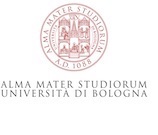HLONIPHA MOKOENA
|
 |
|
This series of three lectures / seminars is a consideration and evaluation of the student protests of 2015 and 2016 that were given the titles #FeesMustFall and #RhodesMustFall. Session 1: Art as Protest / Protest as Art (1968-2016) In the history of South African ideas, the artist has often found themselves having to respond to the political crisis of an “anti-humanist”, racist or sexist ruling elite. During the apartheid era, “protest literature” emerged as a response and resistance to not only apartheid’s racialised social order but to its conservative and prohibitive regimes of censorship. This lecture will be an analysis of that protest literature in its visual form, that is, of protest as art. The lecture will focus on one of the earliest expressions of this protest art (Ernest Cole’s famous photographic essay The House of Bondage) as well as the images from the 1980s Afrapix archive (Omar Badsha, Paul Weinberg and Santu Mofokeng amongst others) which will be the main source of images for discussion. Session 2: Historical re-enactments and the poetics of nostalgia This lecture will consider the #movements as a “re-enactment” of the events of June 16, 1976. Rather than focusing on the scripts of this re-enactment, the discussion will focus on the visual element, that is, the images that were produced by the students themselves as well as the mainstream media reporting of the events. Specifically, this lecture will compare these images to other emerging youth cultures of “self-styling” and “township aesthetics” which seek to live in the past (through both emotive and cultural nostalgia) while asserting novel forms of African modernity. These forms of nostalgic re-enactment will be read through Jacob Dlamini’s book Native Nostalgia which was a timely anticipation of the emergence of post-apartheid nostalgia for the struggle and for the “nobility” of identifying with the oppressed rather than the oppressor. Session 3: Winnie Mandela as Icon Although not often stated, one of the touchstone icons referenced by the students in 2015 and 2016 was Winnie Madikizela-Mandela. Through her prison memoir and unauthorized biography, this lecture will consider her image and self-styling as a representation of iconography and anti-iconography. Although she was deposed from her position as “Mother of the Nation”, it could be argued that as South Africa takes account of its “unfinished business”, she has re-emerged as the “Mother” of a disgruntled youth movement that seeks to appropriate her as a symbol of femininity, womanism and militancy. This revival of her image will be contrasted to the emergence of other versions of feminism and “girl power” in the form of the self-styled and curated lives of celebrities such as Khanyi Mbau. Hlonipha Mokoena is currently an Associate Professor at WISER. Before June 2015 she worked in the Anthropology Department at Columbia University. She is the author of Magema Fuze: The Making of a Kholwa Intellectual and has a strong research interest in South African intellectual history. Her new research is on the figure of the Zulu policeman, which she explores across the visual historical archive. Hlonipha is a multitalented public intellectual, well known for her work in many different parts of the world, and very strongly placed to both write and speak about the complex entanglements as well as the striking differences between South African and US cultures. |



